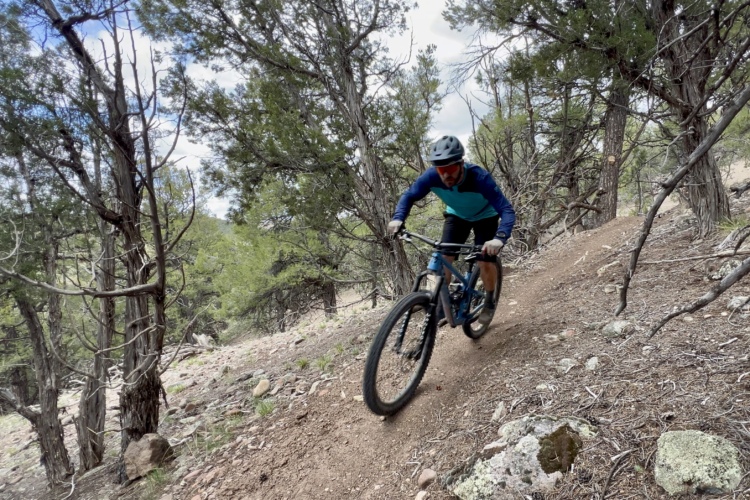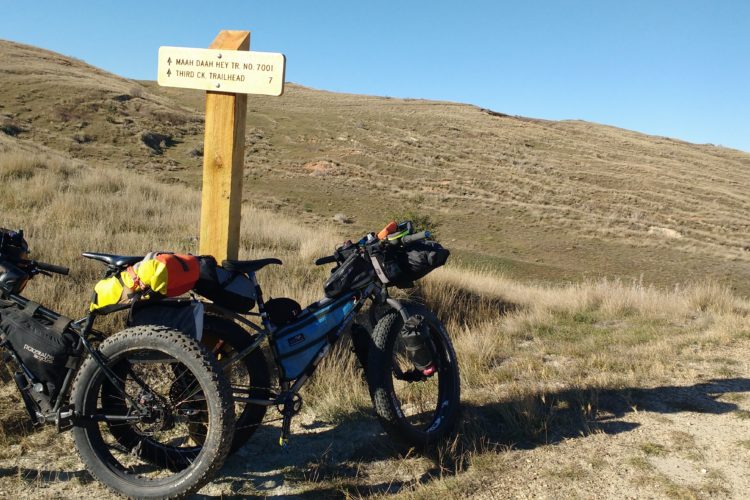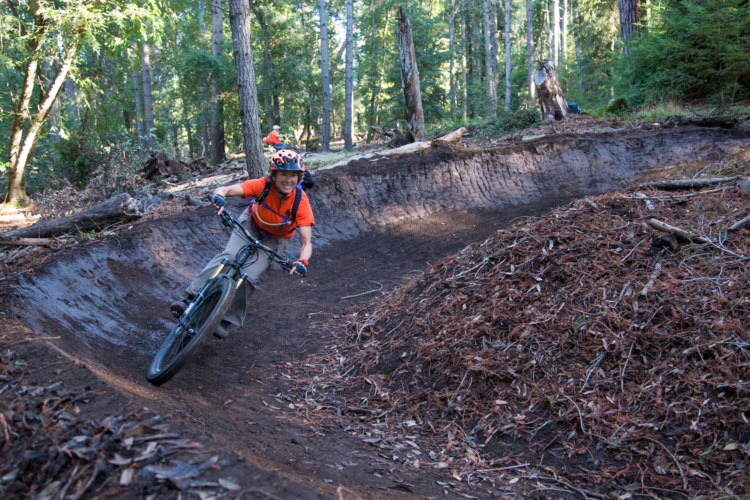
The legislation which became the Expanding Public Lands Outdoor Recreation Experiences (EXPLORE) Act has been in the works for 10 years, and it has finally passed both houses of Congress. On December 19, 2024, the U.S. Senate passed the bill by unanimous consent. The bill had passed the House of Representatives earlier this year and will now go to the president’s desk for signature
The EXPLORE Act is “a first-of-its-kind bipartisan package that improves outdoor recreation on America’s public lands and waters,” according to a press release from the Outdoor Alliance.
“This action shows Congress understands the physical, mental, and economic importance of outdoor recreation on our public lands,” said Todd Keller, Director of Government Affairs for the International Mountain Bicycling Association (IMBA).
Key congresspeople who helped spearhead the passage of the EXPLORE Act include Senator Manchin, Senator Barrasso, Representative Westerman, Rep. Grijalva, Senator Wyden, Senator Cantwell, Senator Heinrich, Rep. Curtis, and Rep. Neguse.
Highlights of the EXPLORE Act
Highlights of the bill include:
- The Biking on Long Distance Trails Act (BOLT Act), which identifies and creates more long-distance bike trails. (Learn more about the BOLT Act here.)
- The Protecting America’s Rock Climbing Act (PARC Act), which safeguards Wilderness climbing.
- The Simplifying Outdoor Access for Recreation Act (SOAR Act), which improves recreational permitting for outfitters and guides.
- The bill codifies FICOR and the Outdoor Recreation Legacy Partnership, which funds parks and green spaces in neighborhoods that need it most.
The BOLT Act is the portion of the bill that’s most noteworthy for mountain bikers, and which IMBA has fully supported.
“The BOLT Act will identify at least 10 existing long-distance bike trails and identify at least 10 areas where there is an opportunity to develop or complete such trails,” said Keller. “The bill will also direct the Department of Interior to publish and distribute maps, install signage, and distribute promotional materials.”

Outdoor recreation is a vital part of the nation’s economy.
According to a recent report from the U.S. Bureau of Economic Analysis (BEA), outdoor recreation in the U.S. generated $1.2 trillion in economic output. This equates to 2.3% of total GDP and creates 5 million jobs. The report also showed that bicycling was the fastest-growing outdoor recreation activity in 2023. Biking increased 26.6% from the previous year, narrowly outpacing winter activities. While these statistics appear to include all types of biking (not just mountain biking), the impact that cyclists of all stripes are having is abundantly clear.
However, despite the massive economic benefit provided by outdoor recreation, public land management agencies like the US Forest Service are woefully underfunded. As we covered in our exclusive newsletter content, the US Forest Service has implemented a hiring freeze on seasonal employees for 2025, which will have a disproportionately negative impact on trail maintenance.
In part, the EXPLORE Act addresses funding for trail maintenance and development. As we understand it, the bill mandates that fees collected from permits for recreational activities, special recreation events, and commercial uses such as filming or photography on federal lands are retained by the respective agencies. Those fees will then be allocated directly for on-site improvements, which include trail building and maintenance, installation of signage and maps, and facility upgrades near trailheads.
In a recent article we published about proposed trail use fees in Western Colorado, one of the primary criticisms of the proposal was the lack of a mechanism to direct the fees toward improvements on the specific trails where they were levied. The EXPLORE Act addresses this problem explicitly.
In addition, the EXPLORE Act specifically funds public agencies like the Forest Service and Bureau of Land Management to produce updated and accessible trail maps.
Finally, the bill mandates that the Office of Management and Budget (OMB) itemize and publish annual federal spending on outdoor recreation. This will ensure a transparent view of funds allocated to trail-related initiatives and will allow Congress to monitor and adjust appropriations for trail development.
“The passage of EXPLORE sends a clear message that outdoor recreation and our public lands are bipartisan priorities,” said Adam Cramer, CEO of Outdoor Alliance, one of the organizations that envisioned and advocated for the EXPLORE Act. “Signing this bill into law represents a meaningful investment in our shared outdoor heritage and the vibrant outdoor recreation economy it sustains. We look forward to continuing to advocate for the protection and enhancement of outdoor recreation and public lands for generations to come. And we are very grateful to members of the public who took the time and effort to let their representatives know how important it was to them to pass this meaningful legislation. That helped make the difference.”
Update: The EXPLORE Act has been signed into law
After being passed by Congress, President Biden signed the Expanding Public Lands Outdoor Recreation Experiences (EXPLORE) Act into law on January 4, 2025.





















2 Comments
Dec 23, 2024
Dec 21, 2024